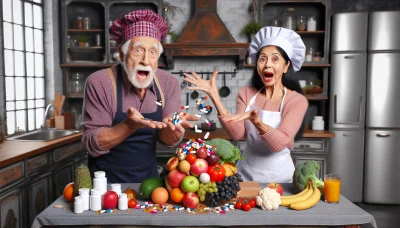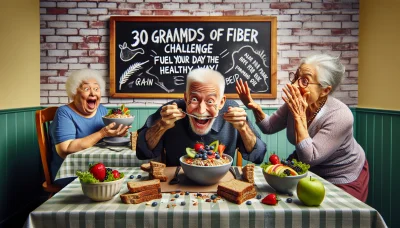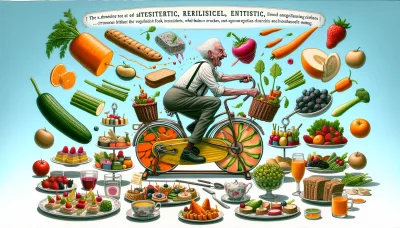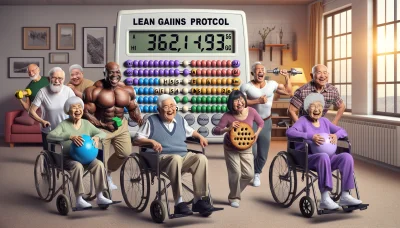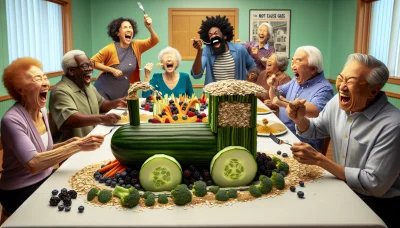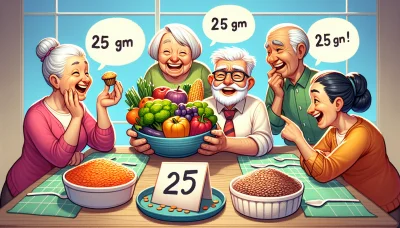Senior grocery allowance Quiz
Test Your Knowledge
Question of
Understanding Senior Grocery Allowance
Eligibility Criteria for Senior Grocery Allowance
- Age Requirements
- Income and Asset Limits
- Residency and Citizenship Conditions
How to Apply for Senior Grocery Allowance
- Application Process Overview
- Required Documentation
- Where to Submit Applications
Maximizing Your Grocery Allowance
Budgeting Tips for Seniors
- Tracking Expenses: Keep a detailed record of all your purchases to understand where your money goes.
- Identifying Cost-Saving Opportunities: Review your tracked expenses to find areas where you can cut back.
- Planning Meals and Shopping Lists: Plan your meals for the week ahead and make a shopping list to avoid impulse buys.
Smart Shopping Strategies
- Using Coupons and Discounts: Take advantage of coupons, discount codes, and loyalty programs to save money.
- Buying in Bulk: Purchase non-perishable items in bulk to save money in the long run.
- Seasonal Shopping for Fresh Produce: Buy fruits and vegetables that are in season to get the best prices and flavors.
Nutritional Needs for Seniors
Understanding Dietary Requirements
Macronutrient Ratios
Seniors need a balanced diet consisting of carbohydrates, proteins, and fats. The specific ratio can vary based on individual health conditions and activity levels.
Vitamins and Minerals Essentials
It's crucial for seniors to intake sufficient vitamins and minerals to maintain health. Key nutrients include vitamin D, calcium, and vitamin B12.
Hydration and Senior Health
Proper hydration is vital for all, especially seniors, to help maintain bodily functions and prevent urinary tract infections and kidney stones.
Common Nutritional Deficiencies
Iron Deficiency
Iron is essential for creating hemoglobin, and a deficiency can lead to anemia, causing fatigue and weakness.
Calcium and Vitamin D Deficiency
These are crucial for bone health. A deficiency can lead to osteoporosis, increasing the risk of fractures.
B12 and Folate Deficiency
A deficiency in these vitamins can cause megaloblastic anemia, leading to fatigue and weakness.
Adapting Diets for Health Conditions
Heart-Healthy Eating Plans
- Low Sodium Options
- Cholesterol Management Foods
- Incorporating Omega-3 Fatty Acids
Diabetic-Friendly Meal Planning
- Carbohydrate Counting Basics
- Glycemic Index and Meal Timing
- Sugar Substitutes and Natural Sweeteners
Easy and Healthy Recipes for Seniors
Quick and Nutritious Breakfast Ideas
-
Oatmeal Variations
Start your day with a warm bowl of oatmeal. Try adding different fruits, nuts, and a dash of cinnamon or honey for variety and extra flavor.
-
Smoothies and Shakes
Blend your favorite fruits with yogurt or almond milk for a quick, nutritious shake. Adding a scoop of protein powder can also help keep you full longer.
-
Egg-Based Dishes
Eggs are a great source of protein and can be prepared in many ways. Consider scrambled eggs, omelets filled with veggies, or a simple poached egg over whole-grain toast.
Simple Lunch and Dinner Solutions
-
One-Pot Meals
Minimize cleanup with one-pot recipes. Soups, stews, and casseroles are great options that can also be packed with vegetables and lean proteins.
-
Salads with Protein
A hearty salad can be a perfect meal. Mix in leafy greens, vegetables, a source of protein like chicken or beans, and top with a light dressing.
-
Slow Cooker Recipes
For convenience, use a slow cooker to prepare your meals. It’s an easy way to make tender meats and flavorful dishes with minimal effort.
Staying Social with Mealtime
Community Dining Programs
Local Senior Centers Offerings
Many local senior centers provide community dining programs that allow seniors to enjoy nutritious meals in a social setting. These programs often include a variety of cuisines and special diet options.
Benefits of Shared Meals
Sharing meals can significantly enhance social interactions, improve mental health, and encourage a balanced diet. It's an opportunity for seniors to engage with their peers and form new friendships.
How to Join Community Meal Programs
Joining a community meal program typically involves contacting your local senior center or community organization. Some programs may require a small fee or donation.
Cooking Clubs and Classes for Seniors
Finding Local Cooking Workshops
Local community centers, culinary schools, and senior centers often host cooking workshops specifically designed for seniors. These workshops can range from basic cooking skills to gourmet cooking techniques.
Online Cooking Communities
For those who prefer to stay home, online cooking communities offer a platform to learn new recipes, share cooking tips, and interact with fellow cooking enthusiasts from around the world.
Starting Your Own Cooking Club
Creating your own cooking club can be a rewarding way to share your passion for cooking with others. It involves organizing regular meetings, selecting recipes, and enjoying the fruits of your labor together.
Overcoming Common Eating Challenges
Addressing Appetite Loss in Seniors
- Enhancing Food Flavor Naturally
- Creating Appealing Meal Presentations
- Small, Frequent Meals Approach
Solutions for Chewing and Swallowing Difficulties
- Soft Food Diet Recommendations
- Swallowing Therapy Techniques
- Adaptive Eating Utensils and Aids



